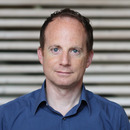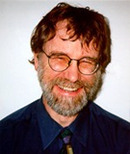REASON Spring School 2018 Workshops
 |
Rainer Bromme (University of Münster) Bounded reasoning or bounded understanding: Revealing (hidden) aims of different approaches on scientific literacy |
Workshop Abstract
Representative surveys in western, industrialized countries show a high general trust in science, but when it comes to certain topics and to certain subgroups, trust in science and in scientists is much lower. Climate change, homeopathy and vaccination are examples for topics where relevant groups of citizens do not believe in the prevailing scientific evidence. Instead, knowledge claims which have been put forward by science deniers are accepted or are at least deemed to be just as justified as the science based knowledge.
In the workshop we will discuss possible reasons for the acceptance, but also for the denial of scientific knowledge claims. We will sort such reasons according to a theoretical distinction between limits and shortcoming of reasoning and limits and shortcomings of understanding. We will discuss further reasons for science denial which are situated in the social context of the public discourse about such topics. Based on this first introductory part, we will then jointly design possible interventions which could counteract science denialism. Such interventions (for example providing refutational arguments or providing information about vested interests of science deniers) are –in any cased- based on an idea about what should be the capacities of citizens when they reason about science based knowledge claims. Insofar they are based on ideas about what it would mean to enhance citizens' functional scientific literacy (see my keynote).
 |
Michelene (Micki) T.H. Chi (Arizona State University) Principles and methods of coding qualitative data |
Workshop Abstract
The aim of this workshop is to demonstrate the steps involved for quantifying subjective coding of verbal data. Attendees will learn a principled method of transforming their complex qualitative data (e.g. interviews, essays, explanations etc.) into quantitative data in order to draw more objective conclusions about either the cognitive underpinnings of the reasoning process or about the structure of knowledge. Numerous examples from published research of the workshop leaders will be provided. A strong emphasis will be placed on matching one’s research question with analysis grain size, taxonomy of coding categories, and coding procedures. Workshop will be interactive with examples, case studies, and group activities. Attendees should bring data from their own research, or data similar to the type of discourse they plan to analyze, as they will have opportunity to analyze the data they bring using the steps presented in the workshop.
Workshop Co-Leader: Joshua Morris, PhD, Postdoctoral Research Associate, Learning and Cognition Lab, Institute for the Science of Teaching & Learning, Arizona State University.
 |
Hansjörg Neth (University of Konstanz) Grasping uncertainty: What experts and laypeople need to know when reasoning about science |
Workshop Abstract
When aspiring towards an ideal of rational reasoning under conditions of uncertainty scientists and laypeople can choose between three sets of tools: Logic, statistics, and heuristics. Unfortunately, science and the general public tend to favor complex solutions over simple ones. Specifically, logic and probability theory are typically preferred and regarded as normative, whereas intuitive insights based on experience are viewed as cheap and prone to systematic errors. As a consequence, the findings of cognitive and social scientists suggest a dangerous ubiquity of fallacies and biases.
We advocate an alternative perspective and promote two remedies that provide methodological guidance without sacrificing simplicity. For researchers interested in mapping bounded rationality we recommend rational task analysis (Neth, Sims, & Gray, 2016) as a simple recipe to prevent premature conclusions regarding human (ir-)rationality. For a more successful communication of scientific evidence to the general public we distinguish misleading representation formats from their transparent counterparts. This workshop will introduce both remedies via examples and exercises and provide a more constructive and optimistic outlook on people’s potential for rationality.
Short Bio: Hansjörg Neth is lecturer in Social Psychology and Decision Sciences at the University of Konstanz, and adjunct researcher at the Center for Adaptive Behavior and Cognition at the Max Planck Institute for Human Development, Berlin. His research focuses on the analysis of adaptive behavior, interactive cognition, and ecological rationality, as well as applied aspects of judgment and decision-making under risk and uncertainty. Previously, he has served as acting chair of Cognition, Emotion and Communication at the University of Freiburg, taught Cognitive and Decision Sciences at the University of Göttingen, and was research assistant professor in Cognitive Science at the Rensselaer Polytechnic Institute. He holds a PhD in psychology from Cardiff University, UK.
 |
Kurt VanLehn (Arizona State University) Techniques used by intelligent tutoring systems to analyze (scientific) reasoning |
Workshop Abstract
Some Edutech systems use a regulative or cybernetic approach: (1) They analyze the actions of the students to infer their reasoning. (2) They compare the observed reasoning to normative reasoning—what we would like the students to think. (3) They take actions intended to reduce the difference between the observed reasoning and the normative reasoning. When a regulative system works with an individual student, it is called an Intelligent Tutoring System. Regulative systems for collaborative, multi-student work have a variety of names. Such systems use 4 basic techniques to represent normative reasoning and compare it to observed reasoning. However, much of the underlying technology is a function of the kinds of actions that the system can sense the students taking. For instance, analyzing text is more difficult than analyzing equations, which is in turn more difficult than analyzing concept maps. This workshop will cover both the basic techniques and analysis methods for some of the more common action types.
Short Bio: Kurt VanLehn is the Diane and Gary Tooker Chair for Effective Education in Science, Technology, Engineering and Math in the Ira A. Fulton Schools of Engineering at Arizona State University. He received a PhD from MIT in 1983 in Computer Science, was a post-doc at BBN and Xerox PARC, joined the faculty of Carnegie-Mellon University in 1985, moved to the University of Pittsburgh in 1990 and joined ASU in 2008. He founded and co-directed two large NSF research centers (Circle; the Pittsburgh Science of Learning Center). He has published over 125 peer-reviewed publications, is a fellow in the Cognitive Science Society, and is on the editorial boards of Cognition and Instruction and the International Journal of Artificial Intelligence in Education. Dr. VanLehn's research focuses on intelligent tutoring systems, classroom orchestration systems, and other intelligent interactive instructional technology.

